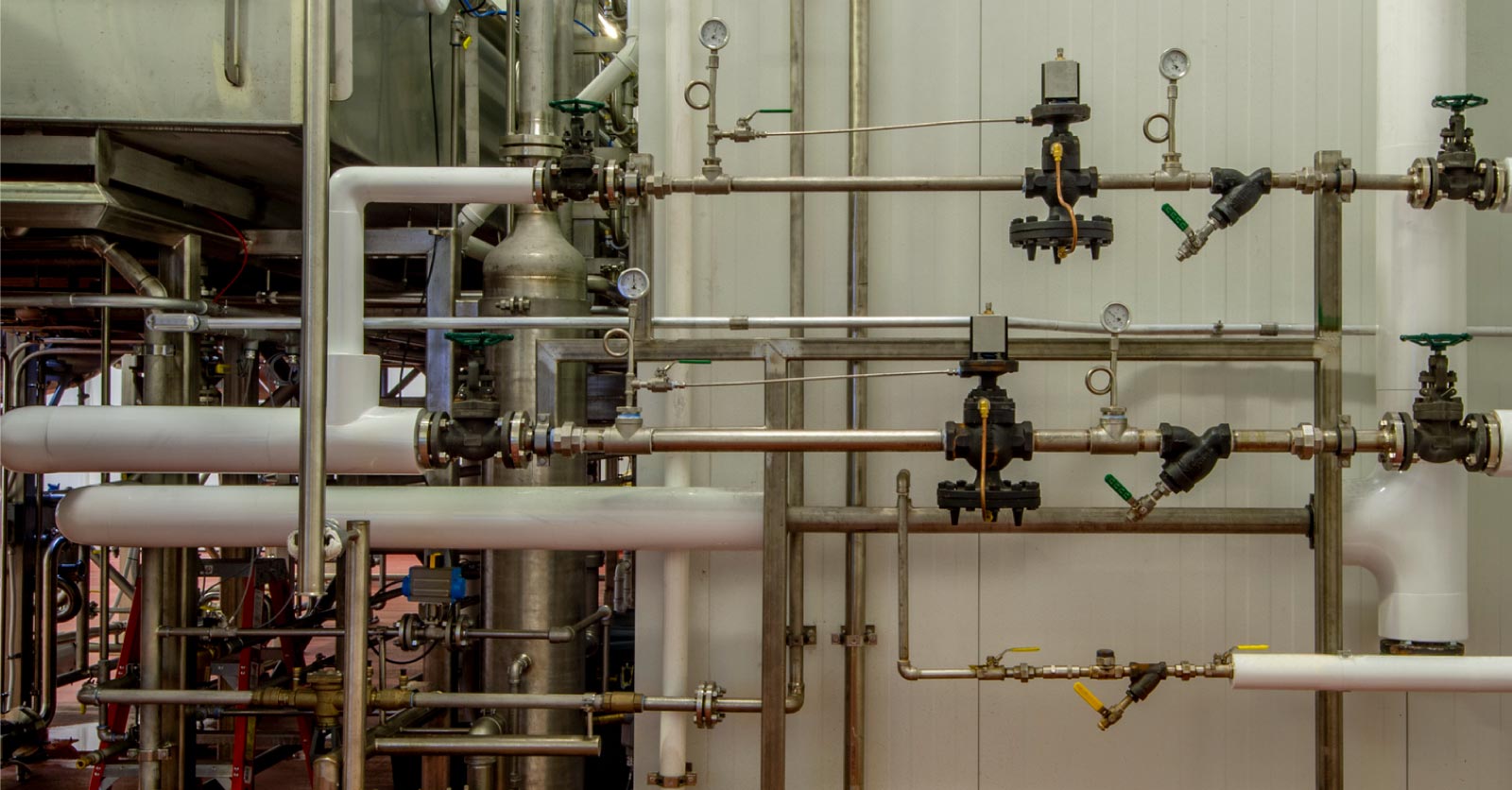Published February 1, 2022

When plumbed correctly, water movement through buildings and operational systems is efficient and quiet without loud vibrations, banging or knocking noises that disturb the people in a building. Those are the sounds of trouble.
There are several things that cause water pipe vibration, bangs and knocks:
Pumps vibrate and create noise as they move water. Vibration transmits from a pump through the piping and the building structure. Even if the pump is in an equipment room in a remote location away from people, noise and vibration may be transmitted through the pipes and be heard throughout the building.
Often engineers will specify springs or rubber pads to isolate the pumps from the building structure. For piping, there are several choices such as a hose-and-braid assembly. Other options available are rubber or polytetrafluoroethylene (PTFE) connectors.
Plumbing systems normally operate at relatively low pressures and temperatures, which make them perfect candidates for elastomeric connectors. Stainless hose and braid and elastomeric connectors are all commonly seen in equipment rooms.
The key to effectively minimizing pump noise and vibration through the structure is to plan for it and isolate the equipment in the design stage of a building project. It is very difficult to retrofit solutions when a mechanical room was placed directly beside an executive’s office. The time to stop that noise is before you build it.
Older operations may not have piping properly secured. Loose pipes vibrate against their surroundings making noise. In years past, plumbing codes were not as strict; therefore, the pipes may not have been secured properly at the time of installation.
Even if your piping was braced, over time the metal straps can become corroded and break free. This causes the pipes to rattle when water runs through the lines, and can bang into wall studs, floors, or even other pipes which it left untreated can cause a break in the line.
Finding the loose or unattached pipe can be tricky. Our professionals can track it down and determine which pipes are vibrating and knocking. To stop it, they can use foam insulation, tighten the metal mounting straps or add new ones to solve it.
All kinds of pipe material expands with heat. When hot water runs through them pipes swell. They can rub and bump against surrounding metal in walls and joists, causing the banging/knocking noises.
Our professionals can quickly pinpoint trouble pipes and make the most effective adjustments that will prevent banging pipes such as foam insulation or other measures.
Without proper air chambers water hammering send shockwaves through your pipes that make a lot of noise and weaken pipes over time.
Find the air chamber that is malfunctioning and replace it with a new water hammer arrestor. They are mechanically operated to absorb rushing water using a sliding piston that cushions the air. Water hammer arrestors have a long life so are a good investment.
When water pressure is too high it causes the pipes to make banging noises from the force of the water rushing through them. Our certified plumbing technicians can measure the water pressure in your pipes to determine if it exceeds the recommended amount for your system. If so, a pressure regulating valve will be installed to keep your system performing quietly and safely.
Need help to solve vibrating pipes? Contact us for an on-site visit or a quick phone call.